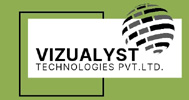Full time Internship Training
DevOps SRE:
DevOps and Site Reliability Engineering (SRE) are related but distinct approaches to software development and operations. DevOps focuses on breaking down silos between development and operations teams to improve the entire software development lifecycle, emphasizing automation and collaboration. SRE, on the other hand, applies software engineering principles to operations, focusing on ensuring system reliability and performance through metrics like SLIs/SLOs and error budgets. While DevOps is a broader philosophy, SRE provides specific practices to achieve reliability within that framework.
Here's a more detailed breakdown:
- Focus: End-to-end software lifecycle, including development, testing, deployment, and monitoring.
- Goal: Accelerate software delivery, improve collaboration, and automate the software delivery pipeline.
- Key Principles: Collaboration, automation, continuous integration/continuous delivery (CI/CD).
- Practices: Infrastructure as code, automation tools (e.g., Jenkins, Docker, Kubernetes), and monitoring.
- Focus: Ensuring system reliability, availability, latency, performance, and capacity.
- Goal: Balancing feature development velocity with system reliability.
- Key Principles: Service Level Indicators (SLIs), Service Level Objectives (SLOs), error budgets, and automation.
- Practices: Monitoring, incident response, automation, and capacity planning.
- SRE can be seen as a practical implementation of DevOps principles, focusing specifically on reliability.
- DevOps provides the broader context, while SRE offers the specific practices and tools to achieve reliability within that context.
- They often work together, with DevOps teams focusing on building and deploying software, and SRE teams ensuring its reliability in production.
- Both share the goal of improving the overall software development and delivery process and reducing organizational silos.
Think of DevOps as the “what” and “why” of improving software delivery, and SRE as the “how” of ensuring reliability within that process. They are complementary practices that, when combined, help organizations deliver high-quality software efficiently and reliably.
LLM DevOps, or LLMOps, refers to the application of DevOps principles and practices to the development and deployment of Large Language Models (LLMs). It involves managing the entire lifecycle of LLMs, from data preparation and model training to deployment, monitoring, and continuous improvement, ensuring they are reliable, efficient, and scalable.
Here’s a breakdown of key aspects:
- Large Language Models are AI models trained on massive datasets of text and code, enabling them to understand, generate, and manipulate human language.
- They are used in various applications, including chatbots, content generation, code completion, and more.
- LLMs, while powerful, introduce complexities in the development lifecycle.
- LLMOps provides a structured framework for managing these complexities, similar to how DevOps manages software development.
- LLMOps aims to streamline the process, improve collaboration, and ensure the quality and reliability of LLMs.
- Data Management: Handling large volumes of data for training and fine-tuning LLMs, ensuring data quality and governance.
- Model Development:Utilizing tools and techniques for efficient model training, evaluation, and experimentation.
- Model Deployment:Implementing strategies for deploying LLMs to various environments (cloud, on-premise) and managing their lifecycle.
- Monitoring and Maintenance:Tracking performance metrics, identifying issues, and ensuring continuous improvement of LLMs.
- Automation:Automating repetitive tasks in the LLM pipeline, such as data preprocessing, model testing, and deployment.
- Collaboration:Fostering collaboration between data scientists, DevOps engineers, and other stakeholders.
- Increased Efficiency: Automating tasks and streamlining workflows to accelerate the development and deployment process.
- Improved Scalability:Managing and scaling LLMs to handle increasing workloads and user demands.
- Enhanced Collaboration:Facilitating better communication and collaboration between different teams involved in the LLM lifecycle.
- Reduced Risk:Minimizing risks associated with deploying and maintaining complex AI models.
- Better Model Quality:Ensuring higher quality and more reliable LLMs through continuous monitoring and improvement.
- LangChain: An open-source framework for building applications with LLMs, enabling complex workflows and integrations.
- Azure Machine Learning Prompt Flow: A platform for developing and iterating on LLM-based applications.
- DevOps Platforms: Tools like GitLab and ServiceNow can be integrated to manage the DevOps lifecycle of LLMs.
LLMs can automate various DevOps tasks, such as:
- Generating code and documentation.
- Automating infrastructure provisioning and management.
- Troubleshooting operational issues.
- Improving security scanning and vulnerability detection.
- Optimizing resource utilization.
- Any degree graduates can apply.
- Must have passed out from 2018 – 2025 graduates and Percentage is not mandatory.
- Must agree with the company terms and conditions to act professionally and develop the career.
- Must be able to work anywhere in Karnataka companies in top or reputed companies in every district.
- Fresher Level – (0-1 Year): Min 5,00,000 lakhs per year – 6,00,000 lakhs per year
- Mid-Level – (1 – 3 year): Min 6,00,000 lakhs per year – 9,00,000 lakhs per year
- Senior Level – (3 – 6 year): Min 9,00,000 lakhs per year – 12,00,000 lakhs per year
Client Hiring Details:
- We’re associated with fortune 500 companies and the interviews will be scheduled immediately after completion of the training within a week.
- With over 15 mock interview calls with MNC staff, you’ll ease the interviewer and grab the opportunity to work at high scale in reputed companies.
